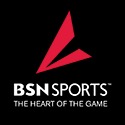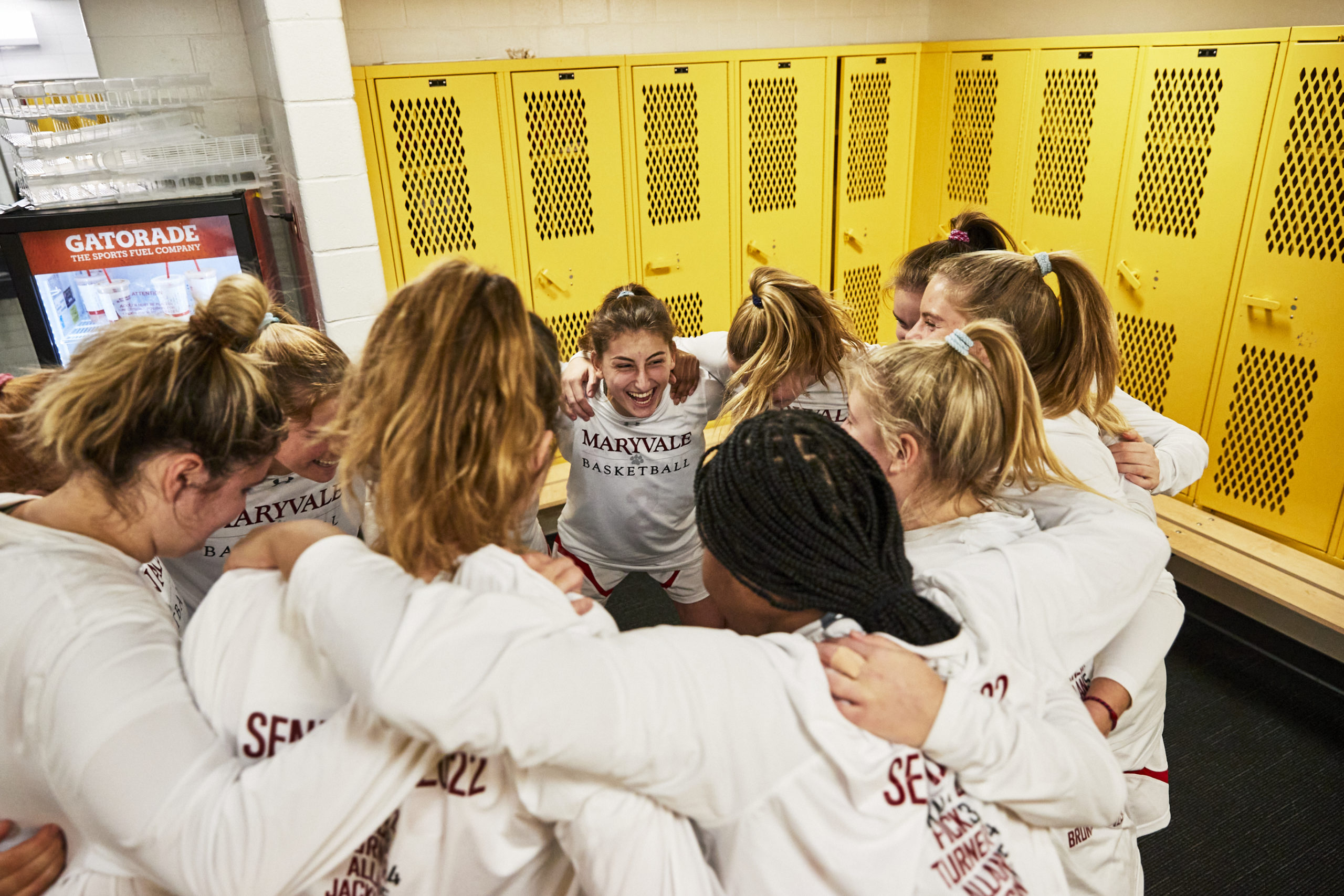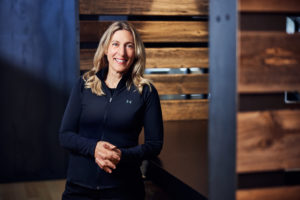Stephanie Pugliese
President of the Americas, Under Armour
Former CEO & President, Duluth Trading Company
Watch our “Navigating Challenge & Finding Success” womenar now.
The following is an excerpt from Stephanie’s recent womenar.
Q: What does a day in your life look like?
A: I am an early riser. Around 5AM, I roll out of bed and start my day. I like to do a few things in the morning first. Almost always, I work out; I like to run and do yoga. I also like to do a little bit of writing in the morning and try to get a couple of thoughts out or write what I am grateful for, as I think that sets the day up right. Then, I answer some urgent emails and grab an expresso, or a couple, depending on what the day looks like. In my current role at Under Armour, a lot of my time is spent with my team in conversation and planning. I finish the day with dinner with family and then I go to bed early.
Q: Can you tell us some of the experiences that shaped your career development?
A: I went to NYU business school and as I was coming out of school, I entered retail and product development. I initially made this choice for career opportunity, starting with a company that was going to train me well, but also because it was something I loved: clothes. I started with Ann Taylor and then moved to performance-based companies.
I was at Ann Taylor for eleven years and some of the benefits of being at a business for that long were that I worked with several different leaders and I was able to grow and increase my scope. Then, I moved to Lands’ End, where they went direct-to-consumer. Next, I made the move to a much smaller business, Duluth. All the connection points of asking myself what can I learn in a new opportunity? What can I contribute and what does it add to my experience? Those were the career choices that I made.
Then, I made a couple of personal choices. In 2001, I was working for Ann Taylor and I had two small children. Then 9/11 happened and I was commuting. Life changed significantly when we found out I was expecting again, so we made a personal decision to move to Italy and I took two years out of the industry. After around six months of staying at home, I realized I was not great at it, so my husband and I opened a small bookstore. This benefited my careers because it showed I took risks and that has helped me more in my career. The second decision I made had to do with my decision to make the move to Duluth. I was not spending a lot of time with my family before Duluth due to my schedule, so I made the choice to go to a smaller organization so I could spend time together with them.
Q: Did you have any mentors, and was there any advice that stuck with you throughout your career?
A: I have been so lucky to have not only some amazing mentors, but also an incredible wealth of people around me that were inspirational. There are a couple of moments that stand out to me in my career, first at Ann Taylor. I had the opportunity to take a job with another retailer, but it was a very different opportunity. I went into a conversation with my boss, and I remember she said, “Stephanie, you have a daughter, and you are about to have a second child. When you talk to your children about where you work and what your business stands for, you should always be proud of that. Are you proud of where you could be going?” That has always stuck with me and in that moment, I decided not to take the job. Ultimately, I did what felt right, and it still helped me in my career.
Secondly, the executive chairman at Duluth. He is a learner, but he always walked in with humility and was always trying to learn from someone else. You may walk into the room being the highest ranking but that doesn’t mean you cannot be open to learning from others.
Q: Did you play any sports?
A: I played a lot of sports, volleyball and softball being my main ones. But honestly, I was not a great athlete. There was not a career in athletics for me, but that doesn’t matter. What I took from sports was working as a team and the pride in accomplishment. What sports did or what it continues to do is it gives me pride to be able to do something that may not have been as natural to me as it was for other people. The fact that I was willing to try and get out there on the field or court. That experience of being in a place I could get better and strive for more and what that “more” meant to me.
As a mom of athletes, it offered me a different perspective. When I think about what athletics has meant to my kids and what coaches have meant to my kids, I am grateful for their passion and their generosity as coaches. Coaches deserve a thank you for doing something for my kids that I cannot do myself. You realize that if you are humble enough, it’s a blessing to have coaches in your life.
Q: What is your leadership philosophy?
A: First, I am so lucky to be a part of an organization where leadership and developing leaders is important. I think it is incredibly valuable. We have realized if we can support great leadership, the spreading of that knowledge grows throughout the organization. So, number one in leadership philosophy at Under Armour is to continue to support and grow great leaders. A long time ago, someone said this to me, and it stuck with me, “My job as a leader is to give you the toolbox so that you can build. I am not going to build for you, but I can help you when you get stuck. Overall, I am going to let you be the leader you can be.” So, number one is supporting leaders as opposed to doing others’ jobs.
The second piece of advice I got is: as leaders, our job is to supply oxygen, and providing oxygen can mean a couple of different things. It can mean supporting when someone is struggling, but it can also mean getting out of the way and giving space so people can breathe. When I think about how I try to lead, I determine where my team needs the oxygen mask and where do they need space, and that balance is tricky.
Q: What are some challenges or opportunities that you’ve experienced as a female executive in a male-dominated field?
A: I have to be honest; I am a rare, lucky, female leader. Since I spent my first eleven years at Ann Taylor, which is around 98% female lead, I was able to grow to a certain level without a lot of the challenges that many other females face. I would say the first time I felt my gender in my career, I was almost at a CEO level. That said, thinking back to when we were going public with Duluth, I was suddenly in a room full of investors, most of whom were male, and I looked around and saw I was the only woman in the room. This may sound strange, but I kind of liked it because I felt unique and that I brought something different. Instead of thinking, “Do I belong here?” I was going to take advantage and use it as a podium to use my voice. The challenges are real, the struggles we have as women are real and we can change that, because we own it and we deserve it. There should never be a question ever of ability, skill or contribution based on gender. I know it exists, but that is absolutely what we need to own, not only for ourselves but for the next generation of female leaders.
Q: As a leader, how do you support working parents on your team?
A: No matter who you are working with, you must come in with positive intent. What I have found in supporting working parents is that often, they have challenges nonparents don’t have. But I have never had a situation where parents work less or contribute less. That assuming positive intent is because of the experiences I have had, and life challenges are things people must deal with.
Additionally, while they will have to step out for sick kids, they will also have to step out for soccer games. I truly believe in being a well-rounded person. We all have things outside of work that make us happy and stimulate us and we bring that back into the office, which helps us be more productive in the long term.
Q: What is one piece of advice you give people in your organization who are trying to reach the next level in their career?
A: Confidence goes a long way. Believing in what you do matters. I believe at different times in our career, we tend not to own that, and I think the shame in it is that sometimes, it takes us awhile to realize we did a good job on different things. You need to own and believe what you do matters, and you are full of greatness. The second thing I would say is if you want the next level, do the next level; don’t just ask for it. It’s how you present yourself, it’s how you speak in public settings, it’s getting involved in different things within your organization. Those things help your leaders have confidence in you.
Q: Can you tell me about a time you made a decision that felt like a sacrifice, but which helped you in the long run?
A: I would say when I left Lands’ End and moved to Duluth. It was a much smaller organization and I saw opportunities in Duluth, but also wanted to spend more time with my family. I wouldn’t call it a sacrifice but rather a choice of the heart, so I wouldn’t say sacrifice, but I would say choices. When I have made choices that speak to who I am and what is important to me, I have never gone wrong. But when I have made choices that felt like I was chasing a title or dollar amount, that’s when it hasn’t been as easy.
Q: Any advice or words of encouragement for female athletes who are willing to work in sports someday?
A: I would say overestimate what athletics does for you and has done for you. What I mean by that is sports provided you with knowledge about teamwork, leadership and about showing up when you don’t want to show up. Overestimate what athletics does in developing you as a person and use that in terms of your conversations with future employers or even colleges. Realize that power now and use it. Sports is a benefit to your career.
Watch our “Navigating Challenge & Finding Success” womenar with Stephanie Pugliese, President of the Americas at Under Armour, now.


